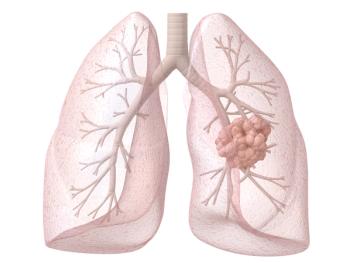
Daratumumab Combo Meets Primary End Point in Relapsed/Refractory Multiple Myeloma
The study is evaluating the subcutaneous formulation of daratumumab in combination with pomalidomide and dexamethasone versus pomalidomide and dexamethasone alone as treatment for patients with relapsed or refractory multiple myeloma.
The addition of daratumumab (Darzalex) in combination with pomalidomide (Pomalyst) and dexamethasone (Ozurdex) improved progression-free survival (PFS) in patients with relapsed or refractory multiple myeloma who have previously been treated with lenalidomide (Revlimid) and a proteasome inhibitor, according to the European Myeloma Network (EMN) in collaboration with Janssen.
Moreover, the safety profile of the subcutaneous formulation of daratumumab in combination with pomalidomide and dexamethasone was consistent with the known safety profiles for each separate therapy.
“We are pleased with these positive results for daratumumab, administered as a subcutaneous formulation, in combination with pomalidomide and dexamethasone,” Jan van de Winkel, PhD, Chief Executive Officer of Genmab, the developer of daratumumab, said in a press release. “The corresponding intravenous regimen was previously approved by the US FDA based on the phase 1 single-arm EQUULEUS study.”
Overall, the randomized, open-label, multicenter phase 3 APOLLO study included 304 patients with multiple myeloma who had previously been treated with lenalidomide and a proteasome inhibitor. Participants were randomized 1:1 to receive either daratumumab in combination with pomalidomide and dexamethasone or pomalidomide and dexamethasone alone.
In the original design of the study, patients in the daratumumab plus pomalidomide and dexamethasone arm were treated with the IV formulation of daratumumab. However, as of amendment 1, all new patients randomized to the experimental arm were dosed with the subcutaneous formulation of daratumumab, and those who had already begun treatment with intravenous (IV) daratumumab were given the option to switch to the subcutaneous formulation.
Janssen indicated that they intend to discuss the data from the APOLLO study with health authorities in preparation for regulatory submissions. In addition, the company is planning on submitting the data for presentation at an upcoming medical conference.
The APOLLO study was designed to confirm the results from the phase 1 EQUULEUS study, which investigated IV daratumumab plus pomalidomide and dexamethasone in the same indication. Notably, in June 2017, the FDA approved the use of daratumumab in combination with pomalidomide and dexamethasone for the treatment of patients with multiple myeloma who have received at least two prior therapies including lenalidomide and a proteasome inhibitor based on results observed in the EQUULEUS study.
Reference:
Genmab Announces European Myeloma Network and Janssen Achieve Positive Topline Results from Phase 3 APOLLO Study of Daratumumab in Combination with Pomalidomide and Dexamethasone in Relapsed or Refractory Multiple Myeloma [news release]. Copenhagen, Denmark. Published July 31, 2020. genmab.com/news-releases/news-release-details/genmab-announces-european-myeloma-network-and-janssen-achieve. Accessed August 3, 2020.
Newsletter
Stay up to date on recent advances in the multidisciplinary approach to cancer.












































